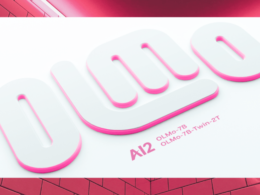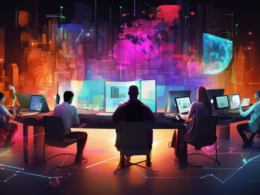Last week was filled with rapid developments in the world of artificial intelligence (AI). However, amidst all the news, I found it challenging to focus due to the devastating terror attack by Hamas on Israel. The attack has resulted in numerous casualties and has sparked a full-scale war, endangering the lives of millions of people in Gaza. As Dean Takahashi of GamesBeat aptly put it, I find myself at a loss for words.
Although I am deeply saddened by the current events, it is crucial to gain perspective when considering the global AI landscape. Israel has always played a significant role in technology, including AI. A recent study by Stanford University ranked Israel among the top five countries in terms of machine learning systems and AI skills concentration. Several AI startups, such as Gong, AI21 Labs, Verbit, Run AI, Trigo, and Pinecone, have emerged as success stories in the country. Additionally, major tech companies like Google, Nvidia, and Microsoft have a substantial presence in Israel, with many employees dedicated to AI research.
The Implications on the AI Community
The ongoing conflict in Israel has had a direct impact on the AI community, with social media platforms being inundated with posts from Israeli professionals in the field. Frustration, anger, and grief are palpable in many discussions surrounding AI research, development, and investment. However, some industry leaders have also been personally affected by the conflict. Eyal Waldman, the co-founder of Mellanox Technologies, lost his daughter and her boyfriend in the attack on the Nova music and peace festival. This tragedy highlights the interconnectedness of AI leaders within the community.
“We have 3,300 NVIDIA families and many friends in Israel. Hundreds of our employees have returned to military duty. Our thoughts are constantly with you, and we hope for your safe return.”
While many leaders have expressed their condolences and support, there are calls for more prominent figures, such as OpenAI CEO Sam Altman and co-founder/chief scientist Ilya Sutskever, to address the conflict and its implications. The silence from these figures has sparked criticism from some members of the AI community.
AI Challenges and Disinformation
The Israel-Hamas conflict has also exposed significant challenges within the field of AI, particularly in relation to disinformation. Chatbots and AI image detectors have struggled to keep up with real-time news, often providing inaccurate or false information. This, in turn, perpetuates a second level of disinformation, undermining the reliability of AI tools.
“Chatbots, including Google’s Bard, Microsoft’s Bing, and ChatGPT Plus appear out of touch with the reality of the present day, mixing accurate statements with details that are flat-out wrong or made up.”
Moreover, AI tools and high-tech surveillance technologies, which were showcased by Israeli officials shortly before the attack, have been called into question. The reliance on AI for decision-making and analysis demonstrates the potential risks and limitations of these technologies.
As the Israel-Hamas conflict unfolds, it is important to recognize the human impact of the situation while also acknowledging the influence it has on the AI community. Through understanding these implications, the AI industry can strive for greater accountability and address the challenges that arise in times of conflict.









